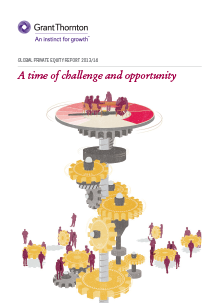-
Audit
At Grant Thornton, our IFRS advisers can help you navigate the complexity of financial reporting.
-
IFRS support
Our IFRS advisers can help you navigate the complexity of the Standards so you can focus your time and effort on running your business.

-
Transfer pricing
The laws surrounding transfer pricing are becoming ever more complex, as tax affairs of multinational companies are facing scrutiny from media, regulators and the public
-
Tax Audit
Our trusted teams can prepare corporate tax files and ruling requests, support you with deferrals, accounting procedures and legitimate tax benefits.
-
Tax Appeal
Our teams have in-depth knowledge of the relationship between domestic and international tax laws.
-
Advance Ruling
Through our global organisation of member firms, we support both companies and individuals, providing insightful solutions to minimise the tax burden for both parties.
-
Tax Treaty Benefits Application
Tax Treaty Benefits Application
-
FINI/FIDI Tax Services
Our solutions include dealing with emigration and tax mitigation on the income and capital growth of overseas assets.
-
Expatriate Income Tax Filing
Our team has extensive experience in helping expatriates in Taiwan to file personal income returns and claim tax refund where applicable. We file approximately 300 expatriate personal income tax returns in Taiwan annually.
-
Bookkeeping
Effective bookkeeping and financial accounting are essential to the success of forward-thinking organisations. To get the optimum benefit from this part of your business, you'll need an experienced team behind you.
-
Inventory movement reporting
Outsourcing your operations and specific business functions to Grant Thornton can not only cut costs, but also bring new insights and experience to your business.
-
Payroll administration
Payroll and, in addition, personnel administration are the biggest and most time-consuming challenges facing expanding organisations. Grant Thornton’s outsourcing teams can manage these commitments on your behalf, allowing you to focus on what you do best – growing your business.
-
Trust account management
Running a transparent and trusted business means keeping shareholders, owners, management and other important stakeholders informed about key developments in your organisation.
-
VAT returns
At Grant Thornton, we understand the pressures management is under to achieve results, and for this reason we have developed systems for taking away the burden of compliance chores, leaving you to spend your time and energy on the core activities that ultimately lead to growth.
-
Head Office reporting
Businesses frequently outsource some of their daily operating tasks in order to focus their energy on their core competencies, while improving performance and lowering costs of their non-core activities. By saving time and money, Grant Thornton's outsourcing services allow clients to concentrate on what is really important to their business.
-
Executive Search
We understand that HR leaders need to focus on securing talents and this is no easy exercise. Our mission is to share best practices with our clients and help our clients to stay competitive in the market. Please do not hesitate to contact us to find out more about details of our services and how we can work together with you.
-
Work Permit and Employment Gold Card Application Services
Work Permit and Employment Gold Card Application Services
-
Expatriate Tax
Expatriate Tax
-
PRIMA Consulting Services
PRIMA Consulting Services
-
Business Operation Plan Composition
Business Operation Plan Composition
-
Setting up legal entities
With a global network of experts in their respective tax and regulatory environments, Grant Thornton advisors help individuals and corporations establish the type of business entity that will best position them to achieve their goals from the very start of their operations.
-
Liquidation and de-registration
Sometimes a business suffers an adverse event which impacts its ability to continue trading. And sometimes a solvent sale proves unsuccessful or a turnaround just isn't an option.
-
Update company statutory record
With a global network of experts in their respective tax and regulatory environments, Grant Thornton advisors help individuals and corporations establish the type of business entity that will best position them to achieve their goals from the very start of their operations.
-
Merger and Acquisition
Merger and Acquisition

-
Administrative remedies
Administrative remedies
-
Corporate legal consulting
Corporate legal consulting
-
Bankruptcy and restructuring
Bankruptcy and restructuring
-
Company dissolutions and liquidations
Company dissolutions and liquidations
-
Supplier and employee background investigations
Supplier and employee background investigations
-
Legal attest letter drafting service
Legal attest letter drafting service
-
Preparation and review of agreements in Chinese and English
Preparation and review of agreements in Chinese and English
-
Lifting restrictions on going abroad
Lifting restrictions on going abroad
-
Labor law compliance and labor-management negotiation
Labor law compliance and labor-management negotiation
-
Business and personal asset planning
Inheritance, inheritance tax, family business, and personal asset planning
-
Not for profit organizations
Not for profit organizations
-
Schools
Schools
-
Others
Others
Global private equity report 2013/14: A time of challenge and opportunity
Private equity firms around the world are adapting to a 'new fundraising road map', according to the Grant Thornton Global Private Equity Report 2013/14. Now in its third year, the report is the result of 156 in-depth interviews with senior private equity practitioners around the globe.
The report provides insight into private equity general partners’ expectations for numerous aspects of the fundraising and investment cycle. This year the report takes a closer look at fundraising and reveals how private equity firms are adapting their approach to increase their chances of a successful fundraise.
Fundraising sentiment
While the private equity fundraising environment around the world is still seen as challenging, there has been a marked improvement in sentiment across all geographies since last year’s report, with more than half of the executives surveyed (54%) having either a positive or neutral outlook. This compares with just a quarter (27%) last year.
Martin Goddard, global service line leader, transactions, Grant Thornton International Ltd commented: "There is a brighter view of the fundraising environment across nearly all the major private equity markets in the world. The percentage of respondents describing the environment as positive is up in North America, Asia Pacific, Middle East & North Africa and even Europe."
Fund structures changing
A majority of GPs around the world (56%) predict an increase in the use of alternative fund structures over the next three years, as limited partners explore options beyond the traditional 10-year blind pool fund. The alternative structure most commonly cited by GPs is deal-by-deal, whereby investors are presented investment opportunities and can either opt in or out on a case-by-case basis.
Fundraising: longer, slower, harder
While there is more general positivity around fundraising prospects, there is also a recognition among the survey respondents that the process has become costlier and more onerous. Many report that the distinction between “fundraising” and “investor relations” had become more blurred and fundraising is seen more as a constant process of relationship building and reporting rather than a cyclical exercise.


